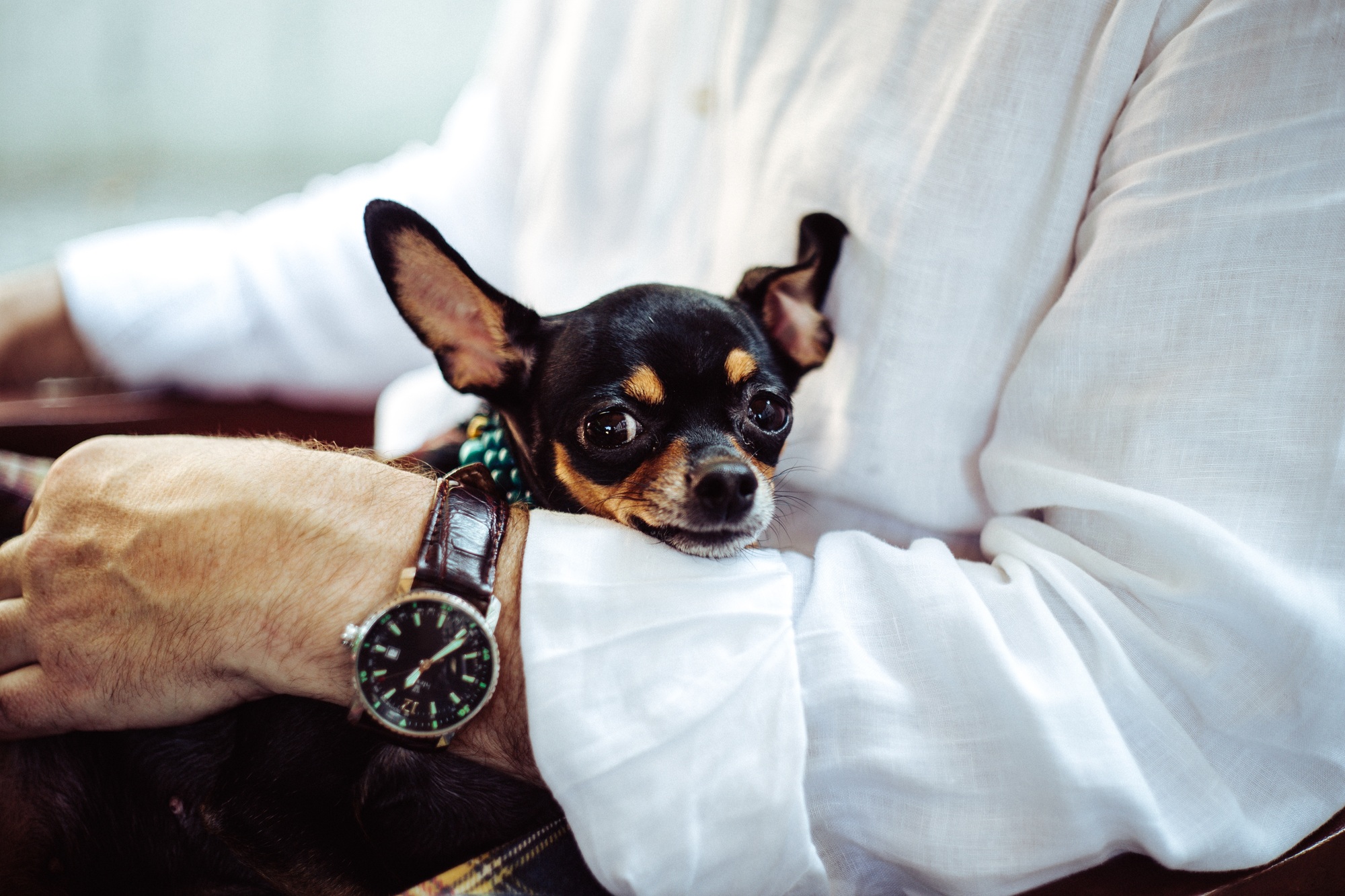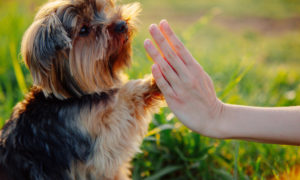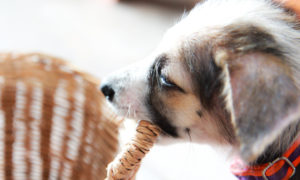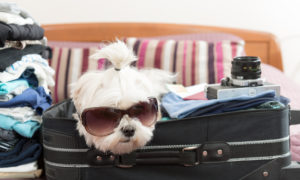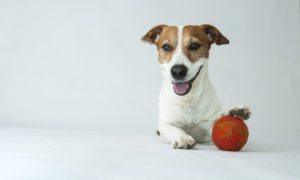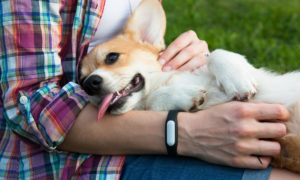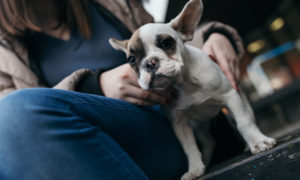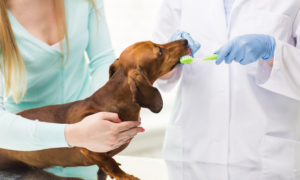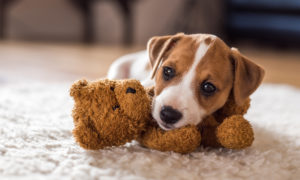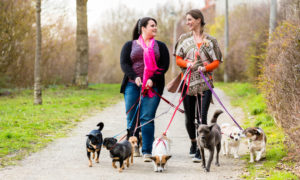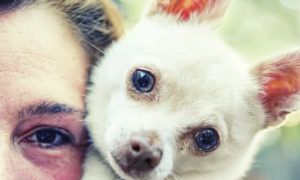If you have a small dog, you’ve probably seen it go up against much bigger dogs as though big dogs are no “big” thing.
Maybe you’re walking your chihuahua when your neighbor and his gentle giant Great Dane come from the opposite direction. Instead of cowering to the larger beast, your chihuahua pulls at the leash and barks until they are out of sight.
Or maybe you’re having a quiet Netflix and chill evening with your boyfriend. But your toy poodle barks his displeasure when your boyfriend reaches to hold your hand.
Whatever the display of aggression or drama, why are smaller pups more territorial than larger dogs?
Here are a few reasons why aggressive small dogs behave the way they do.
Fear of a Bigger Beast
Excitable small dogs aren’t necessarily mean small dogs. They could be afraid of larger dogs.
Mean behavior is a way for small dogs to deal with their fear.
It’s an “attack first” defense behavior. And it’s a way for your dog to protect herself in what she feels is a “small dogs vs. big dogs” situation.
Even if there is no threat, it’s an instinct for animals to want to appear larger and meaner than they are in what they feel is a threatening situation.
If your small dog has little experience with big dogs, some socialization could help her become more comfortable around larger dogs.
Defending Their Territory
Why are small dogs so aggressive? Sometimes they need to defend their territory–even if that territory is you.
Experts call this territory aggression. It’s also known as protective aggression.
If your dog has a favorite spot in the house or a favorite toy that he guards with bared teeth and growls, he’s protecting his territory.
But if your small dog goes nuts when anyone comes near you, your dog is protecting you from perceived danger.
We see this most common with a dog showing aggressive behavior when a man tries to infringe on the space of a woman. This is that Netflix and chill scenario we mentioned earlier.
Whether it’s a fear that you are in danger or a fear that a new person will take you away, your dog wants what is theirs.
Take it slow with other humans when around your dog. Your dog might never love your boyfriend as much as you do.
Have him bring treats or ease into snuggling with you to help your dog understand that there’s enough of you for everyone.
Dogs Get Irritable Too
You know how you are when you’re “hangry.” And before your morning coffee, people know not to speak to you.
Dogs get irritable when they’re uncomfortable, too. Whether it’s a bad day, a long night of restless sleep and puppy dreams or they just aren’t feeling well–dogs react poorly when they experience discomfort.
If you reach to pet your Yorkie and she snaps back at you, check to see if she’s okay. If she’s in pain or not feeling well, these issues could be the source of her aggression.
Dogs can’t tell you what’s wrong. Sometimes it’s hard to diagnose why your dog doesn’t feel well.
Toothaches, paw problems, or other injuries could be hard to see until your dog is grumpy enough to behave poorly.
A Protective Mama Dog
Small mama dogs can show big aggression when they feel a threat to their puppies.
Sometimes this aggression shows while a dog is still pregnant.
Be careful of small pregnant or mama dogs.
A small dog feels threatened by larger things. That fear intensifies when protecting their young babies or puppies-to-be.
The World is Scary
When you’re a small dog, everything is larger, taller, and bigger than you are.
As a human, think about how you would feel if everything in your world was bigger than you are.
Larger dogs can compete with small children, other dogs, and even humans. But your teacup Bijon Frise is always the smallest creature around.
Some people simplify this as “little dog” syndrome. Small dogs try to overcompensate for being small by going overboard with aggression.
But that’s not really the issue. When your the tiniest critter in the room or at the dog park, everything is scary.
When scared, humans act out. Little dogs act out when scared, too.
Help Soothe Your Small Dog’s Aggression
Before you get angry every time your Min-Pin runs up on a full-size Doberman at the dog park, try to understand your dog’s behavior.
Pick up your dog and carry him into new situations with people and other pets. Sometimes the comfort of being close to you and up higher in a room helps ease your tiny dog into a scary new situation.
If you notice certain places in the house where your dog gets aggressive and territorial, try training her to stay calm. If it’s a couch or chair used by the family, it’s important for your dog to understand that spot is not hers to defend.
Find a place that she can call her own, like a dog bed or a corner of the living room that feels safe. Use positive reinforcement to show her that’s “her” place. And encourage everyone else to stay away from that spot.
On the shared couch, teach your dog a command when it’s time to share. Words like “off” or “down” are easy to teach.
When training your small dog, be sure to reward with treats when she gets “off” on command.
Aggressive Small Dogs Are More Bark Than Bite
In most cases, aggressive small dogs are trying to tell you something.
Their barking might seem mean. But they don’t really want to bite you or other dogs.
They need comfort and assurance that they are safe. They need to know you aren’t leaving them. And they need to understand that other everyday dogs and humans aren’t a threat in most situations.
If your small dog is truly displaying dominant behavior, recognize the signs and maintain your place as the leader of the pack with your dog.

